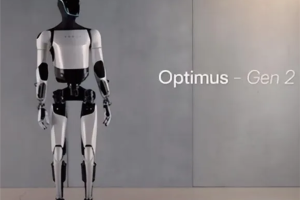Phoebe Zhang
Many literary works recollect the history of Mainland and Macau’s friendship; none are as extensive when it comes to highlighting the deep historical, political, and cultural bonds between the two regions as the six-book series, The Story of Macau. Therefore, after working on this journalistic collection with my grandfather, Yushu Zhang, a journalist at Macau Daily and the author of the series, I can confidently say that the publication ceremony of its first book perfectly pairs with the 25th anniversary of Macau’s return.
That day, August 17th, was a monumental day for my grandfather: for the first time, his 25 years of commitment as a Macao Daily journalist became a piece for the world to absorb. To witness this significant moment, Vice Minister of Publicity and Culture of the Macao Liaison Office Rutao Yin, the president of Macao Daily News Po Lok , CCPPCC standing member Zhiliang Wu, President of the Macau Women’s Federation Teng Lat Ho, Vice Secretary General, Macau Chamber of Commerce Vongkok Seng and Vice President of Macau Publishing Association Chan u Ion, all came to support, praising the book for emphasizing the connection between the two sides.


Yet, the support didn’t come as a surprise, as from 1994 to 2019, my grandfather devoted himself to his role: first as People’s Daily’s first-ever chief reporter at Macau, and then as Macao Daily’s first-ever chief reporter in Beijing. The series, made possible through my grandfather’s dedication, assembles his articles over the 25 years to make a chronic documentary of Macau’s transformation through the two exclusive lenses my grandfather owned. This first book recounts Macau’s return and commencement on the journey to prosperity politically, economically, and culturally.
The journalistic narrative starts before Macau’s return. As a special administrative region of China, Macau has a unique judicial and administrative status. Before its return, my grandfather reported many significant events in Macau as a chief reporter of People’s Daily. The articles conveyed Macau’s political transition and development while interweaving its local livelihood and social circumstances, topics that are equally important, within his writing. Now available in the new book, the articles include discussions about the Basic Law of Macau, the three major tasks of Macau’s post-transition period, the localization of civil servants, the official status of Chinese and legal localization, the election of the Chief Executive of Macau, and the preparation of the Macau Special Administrative Region Government. Wang Xingzeng, former deputy editor-in-chief of the overseas edition of People’s Daily, commented on the cultural and historical significance engraved into my grandfather’s narrative of Macau’s early transition: “[Mr. Zhang] caught up with a good era. In the major historical event of Macau’s embracing its motherland, much news needs to be discovered, tracked, and delivered to the hearts of the public through reporters. It was at this important moment that, with his diligence, Mr. Zhang wrote a large number of news reports, helping people to identify the unique Macau story.”
The book then shifts perspective with my grandfather: after Macau’s return, my grandfather became a member of Macao Daily. Amplifying Macau’s narrative as it journeys through novel, climatic chapters, my grandfather attentively followed the Macau delegation to participate in 20 consecutive annual National People’s Congress and the National Political Consultative Conference, four quinquennial National Congress of the CPC, was invited to participate in the Global Overseas Chinese Anti-insegremnit and Promotion of Unification Conference, and hundreds of other events bridging Mainland and Macau. Such efforts empowered my grandfather to truthfully detail the implementation of the Macau Basic Law after Macau’s return, the functioning of Macau SAR government’s governance according to the law, and the development of Macau’s economy, all as Macau strives to integrate into Mainland’s politics, economy, and culture. Meanwhile, due to his work and outstanding reporting, my grandfather often had the opportunity to attend conventions with China’s central leaders as he followed delegations visiting Beijing from Macau. Witnessing such precious events, my grandfather personally experienced the collaboration between Mainland and Macau when discussing Macau’s policies and guidelines and felt the deep care and support central leaders had for Macau. Actually, I have fond memories of such an event documented in the book: the article titled “Zemin Jiang Comes to Macau to Celebrate the Return” published on March 5, 1999. Throughout pages 470-473 of the published book, the article details President Jiang Zemin’s visit to the National Committee of the Chinese People’s Political Consultative Conference in Hong Kong and Macau during the 1999 Two Sessions, an important event for both Mainland and Macau. Mr. Zong Guangyao, former director of the Liaison Office of the Central People’s Government in Macau, highlights why anyone reading the article would have it engraved in their minds—“Mr. Zhang was the first reporter in the world to report this news,” Zong says, “and this report was praised by relevant central leaders.”
Really, I believe the narrative of The Story of Macau cannot be highlighted by mere words. It has to be read and experienced through the heart. Moreover, I also can confirm my grandfather’s significance goes beyond history: along with his achievement of becoming the first reporter to publish all 2.8 million words of his work, he is a signpost for my generation—his dedication, passion, and courage as a pioneer has sincerely aspired me. As the president of Macao Daily Po Lok says, “Mr. Zhang, who is stationed in Beijing, has become the ‘signboard’ of Macau Daily and an essential to Mainland-Macau communication. Simultaneously, The Story of Macau, a documentary with more than 20 years of accumulation, now compiled and published, is an integral part of the historical texture of Macau’s return and ‘one country, two systems.’”












